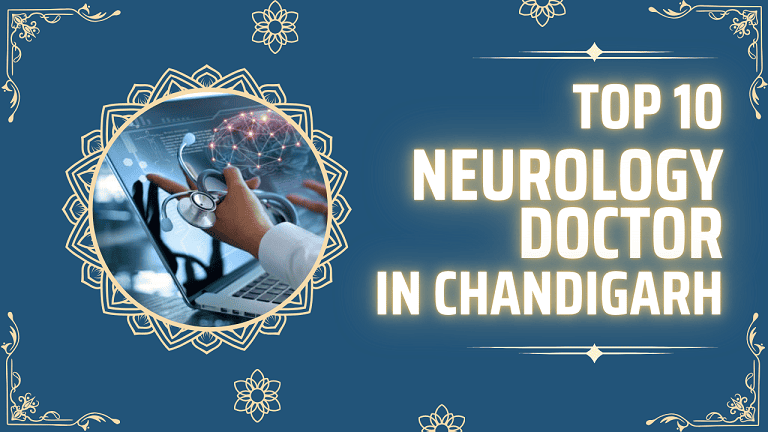Top 10 Neurology Doctor in Chandigarh
FAQ
What is the scope of Neurology?
Neurology encompasses diagnosing and treating conditions affecting the central and peripheral nervous systems. Neurologists deal with a wide range of disorders, including stroke, epilepsy, multiple sclerosis, Alzheimer’s disease, Parkinson’s disease, and brain tumours.
The scope extends from acute conditions to chronic degenerative diseases. Neurologists employ various diagnostic tools and treatment modalities to manage these complex conditions, contributing significantly to patients’ quality of life.
What is the specialization of Neurology?
Neurology specializes in disorders of the autonomic nervous system, brain, muscles, peripheral nerves, spinal cord, and related blood vessels. This comprehensive focus allows neurologists to address various conditions affecting neurological function.
From cognitive disorders to movement abnormalities, neurologists are equipped to diagnose and treat multiple manifestations of nervous system dysfunction, employing medical and surgical interventions as needed.
What does Neurology cover?
Neurology covers the diagnosis, treatment, and management of disorders affecting the brain and nervous system, including conditions impacting the brain, spinal cord, and nerves. Neurologists are medical doctors with expertise in nervous system anatomy and function.
They address a broad range of issues, from headaches and seizures to complex neurodegenerative diseases, utilizing various diagnostic tools and treatment approaches to optimize patient care.
What is the primary function of neurology?
Neurology’s primary function is to diagnose, treat, and manage brain and nervous system disorders. Neurologists focus on understanding and addressing functional or organic disorders affecting these complex systems.
They employ a combination of clinical examination, diagnostic tests, and treatment modalities to care for patients with neurological conditions. This speciality is crucial in maintaining and improving neurological health and function.
What is neurology suitable for?
Neurology is essential for diagnosing and treating brain, spinal cord, peripheral nerves, and muscle diseases. It’s particularly beneficial for managing conditions like epilepsy, stroke, multiple sclerosis, and Parkinson’s disease.
Neurologists provide specialized care that can significantly improve patients’ quality of life, manage symptoms, slow disease progression, and sometimes offer curative treatments for neurological disorders.
How do neurologists treat patients?
Neurologists treat patients using various methods. General neurologists perform procedures like lumbar punctures and nerve conduction studies. Subspecialty-trained neurologists may conduct intraoperative brain and spine monitoring, autonomic testing, endovascular procedures, botulinum toxin injections, and biopsies.
Treatment plans often involve a combination of medications, lifestyle modifications, and sometimes surgical interventions tailored to each patient’s specific condition and needs.
What is the best degree of neurology?
The best degree for neurology is a Doctor of Medicine (M.D.). This follows the completion of a bachelor’s degree, typically in a science-related field. After medical school, aspiring neurologists must complete a medical residency in neurology, which usually lasts 3-4 years.
Some neurologists further specialize with fellowships in stroke, movement disorders, or pediatric neurology. Continuous medical education is crucial in this rapidly evolving field.
How does a neurologist check you?
Neurologists use various methods to evaluate patients. These may include blood tests to rule out conditions like vitamin deficiencies, imaging studies such as MRI or CT scans to visualize brain and spine structures, electroencephalograms (EEG) to assess brain electrical activity, and electromyograms (EMG) with nerve conduction studies to examine nerve and muscle function. A comprehensive neurological examination is also performed to assess reflexes, coordination, and sensory function.
When should I see a neurologist?
Consider seeing a neurologist if you experience unexplained symptoms like vertigo (spinning sensation), loss of balance, or lightheadedness without apparent cause. Other reasons include persistent or severe headaches, memory problems, numbness or tingling, muscle weakness, or seizures. Chronic conditions like migraines or suspected neurological disorders also warrant a neurologist’s evaluation. Early consultation can lead to timely diagnosis and treatment of potential neurological issues.
What disease is under neurology?
Neurology covers a wide range of diseases, including epilepsy, learning disabilities, neuromuscular disorders, autism, ADHD, brain tumours, and cerebral palsy. It also encompasses stroke, multiple sclerosis, Parkinson’s disease, and Alzheimer’s disease.
Some neurological conditions are congenital, while others develop later in life. The field addresses acute and chronic neurological disorders, emphasizing the importance of specialized care in managing these complex conditions.



